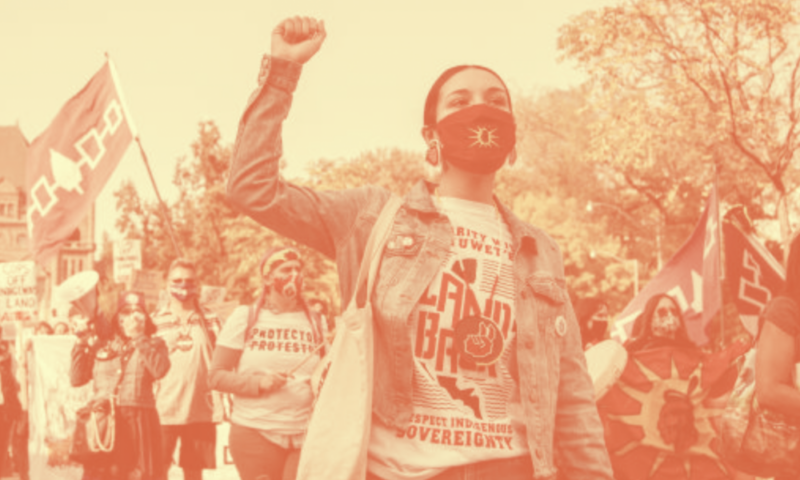Supreme Court Upholds ICWA, Protecting Native Children & Upholding Tribal Sovereignty
Today, the Supreme Court upheld the Indian Child Welfare Act (ICWA), safeguarding crucial protections for Native children, families, and Tribes.
ICWA, a critical law enacted in 1978, has long been a powerful tool in safeguarding Native children from the genocidal practice of forced removal from their families, Tribes, and culture. While we remain saddened that this basic right was debated before the court at all, we’re pleased that today’s decision upholds the constitutional validity of ICWA and affirms the fundamental rights of Native communities and their sovereign authority.
Achieving an equitable clean energy future requires that all communities — especially those who have shouldered disproportionate burdens of our fossil fuel economy for generations — are free from the oppressive structures that created those discrepancies. Indigenous justice is climate justice.
As a non-Native organization, we see any threat to Tribal sovereignty, which includes this case even being heard by the Supreme Court, as unacceptable. We stand in solidarity with Tribal nations, organizations, and advocates who tirelessly championed the cause of ICWA and fought for the rights and well-being of Native children and families.
We also understand that this statement fails to express the magnitude of this court decision and the historical and current oppression against Indigenous people. Allyship in the environmental justice space means understanding these deep, complex issues surrounding Tribal sovereignty and supporting partners who are doing the work.
Vote Solar remains committed to working alongside Tribal communities, advocates, and allies to dismantle oppressive systems, uplift Indigenous voices, and advocate for policies that advance a more equitable, inclusive, and sustainable future for all.
In solidarity,
Sachu Constantine, Executive Director
Vote Solar


